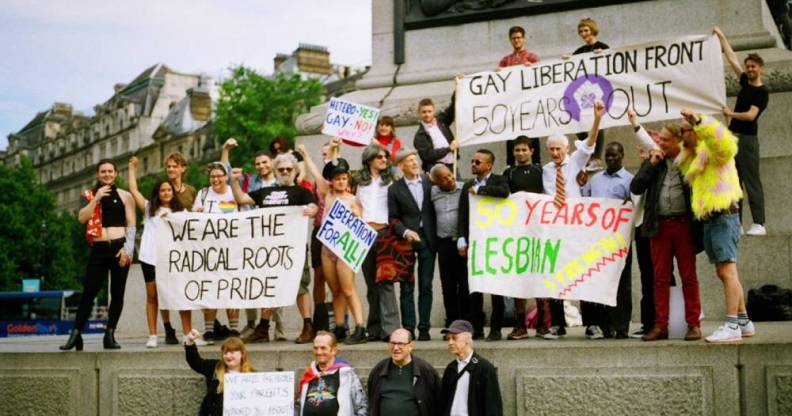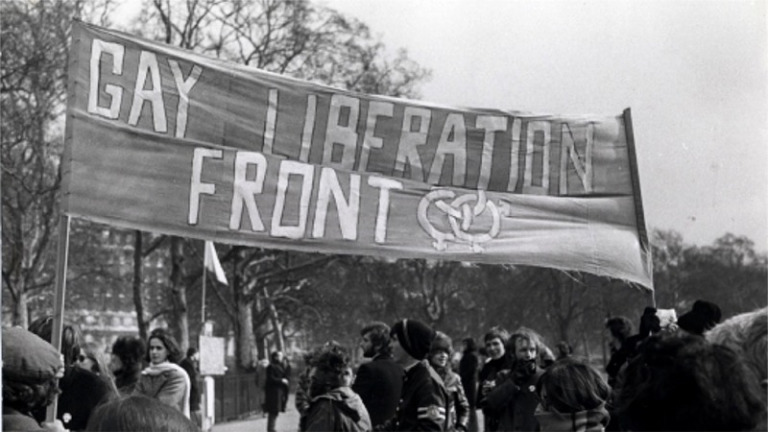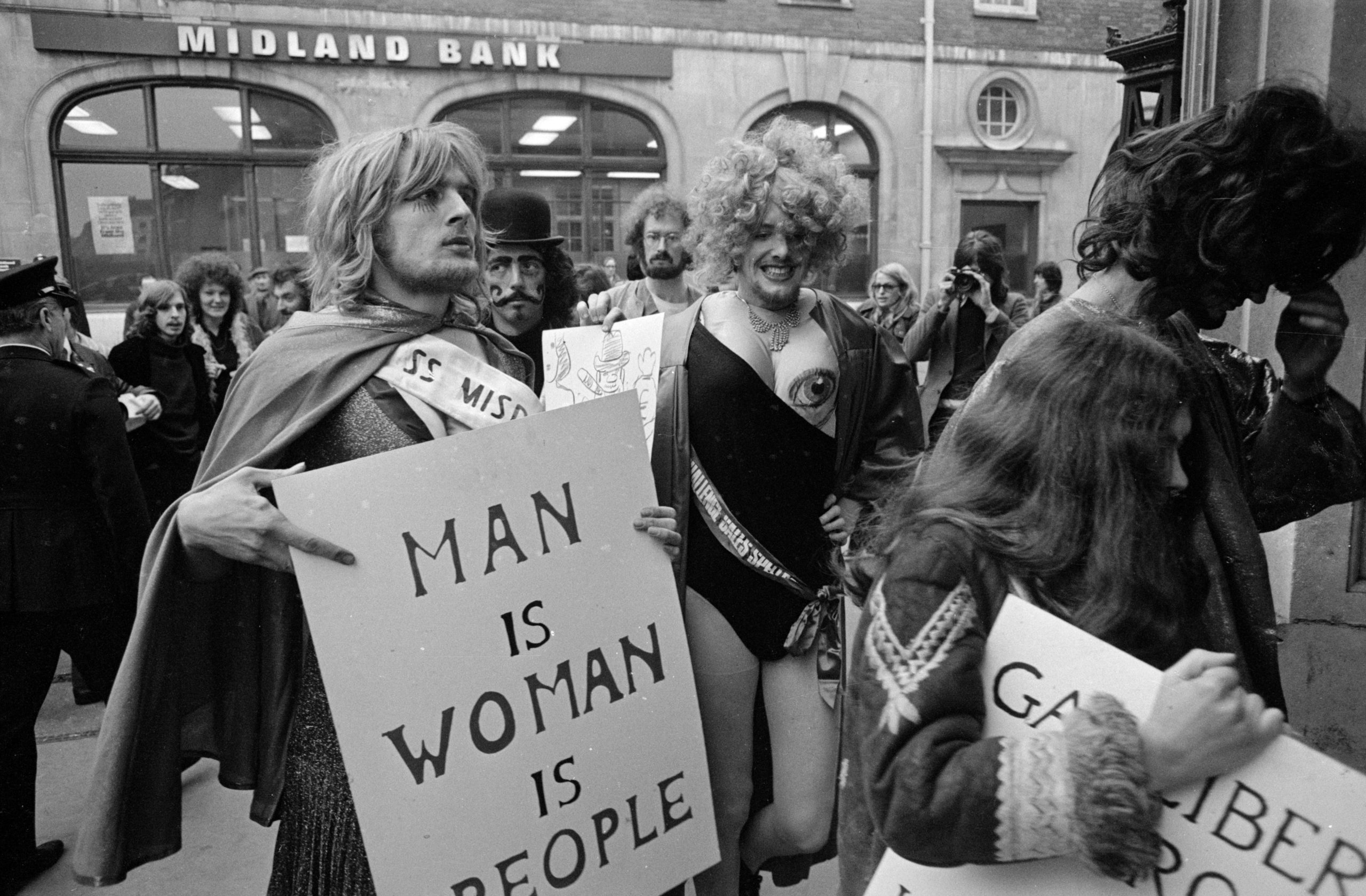UK’s first Pride march couldn’t be further from Pride in London, original marchers say

The Gay Liberation Front (GLF) relaunch in June of 2019. (Ray Malone)
A march commemorating the 50th anniversary of the UK’s first ever Pride will draw attention to the “structural injustices” LGBTQ+ people continue to face, in a welcome change to commercialised Pride parades.
On 1 July 1972, around 500 Gay Liberation Front (GLF) members marched through the streets of London in what became known as the nation’s first ever Pride march.
Half a century on, some of the original GLF members who marched 50 years ago are taking to the streets once more to remind us all that Pride is a protest and that LGBTQ+ people are still not free.
The GLF anniversary march will take place on Friday (1 July), a day before the official Pride in London parade, but activists are clear their march bears few similarities to the current offerings at Pride.
“The main distinction is the political nature of the separate events on 1 July and 2 July,” Dan Glass, a GLF organiser, tells PinkNews. “The Gay Liberation Front has always been a socialist organisation and always challenged profit over people, and that’s very different from [how] Pride in London’s corporation event on 2 July is set up.”

Activists involved with the Gay Liberation Front at a demonstration in the early 1970s. (Peter Tatchell)
Glass continues: “Pride in London empowers half a million people and that is an amazing thing, so it’s not like a ‘you’re with us or you’re against us’ sort of a thing. They just have a very different political purposes.”
By comparison, the GLF movement has “always been about economic, social, environmental and racial equity and liberation”, Glass says.
“It was born out of the women’s liberation, the Black power and the trans liberation movements and a lot of the institutions who were involved in the Pride in London corporation are in direct contradiction to those ethics.”
Gay Liberation Front veterans ‘don’t want anything to do’ with Pride in London
Glass and other GLF activists are profoundly concerned by some of the organisations that are allowed to march in Pride in London, including police (Pride in London made a last-minute announcement after this interview, following widespread calls, that uniformed police would not be welcome at its march), arms companies, and “capitalist institutions which perpetuate economic austerity”.
“The people who started Pride don’t want to have anything to do with that,” Glass says. “That’s why we’re doing a separate one, to draw a line in the sand between the distinctive political differences.”

Members of the Gay Liberation Front protesting outside Bow Street Magistrates Court (Central Press/Getty)
The 1 July GLF march also provides a powerful opportunity for those who marched 50 years ago to come together once more.
“A lot of these legends who started Pride haven’t seen each other for 50 years and it’s going to be a really beautiful occasion to get back together and to continue the work they started which is absolute freedom for all,” Glass says.
It’s particularly notable to see some of those original GLF activists coming together again in 2022 at a time when LGBTQ+ rights are so often under attack.
“We see the rise of LGBTQIA+ hate crime, we see the rise of fascism, we see what happened in Oslo,” Glass says. “It’s really important in itself that we stand up with integrity against the structural injustices that stop us getting our freedoms.”
Pride was always a riot and that’s what we need to continue to maintain our civil freedoms.
There will also be some notable differences between the 1972 march and the 2022 one – Glass expects there will be “a lot less acid” this time around, but he also makes the point that the political landscape is “very different” today.
“The political and legal and protest landscape has changed a lot. Pride was always an uprising, it was always a riot, it was always a protest, and that’s what we’re saying we need to continue to do to maintain our civil freedoms.”
The Gay Liberation Front 50th anniversary march takes place on Friday 1 July at 1pm. The protest will leave from Trafalgar Square area by St. Martin-in-the-Fields.

